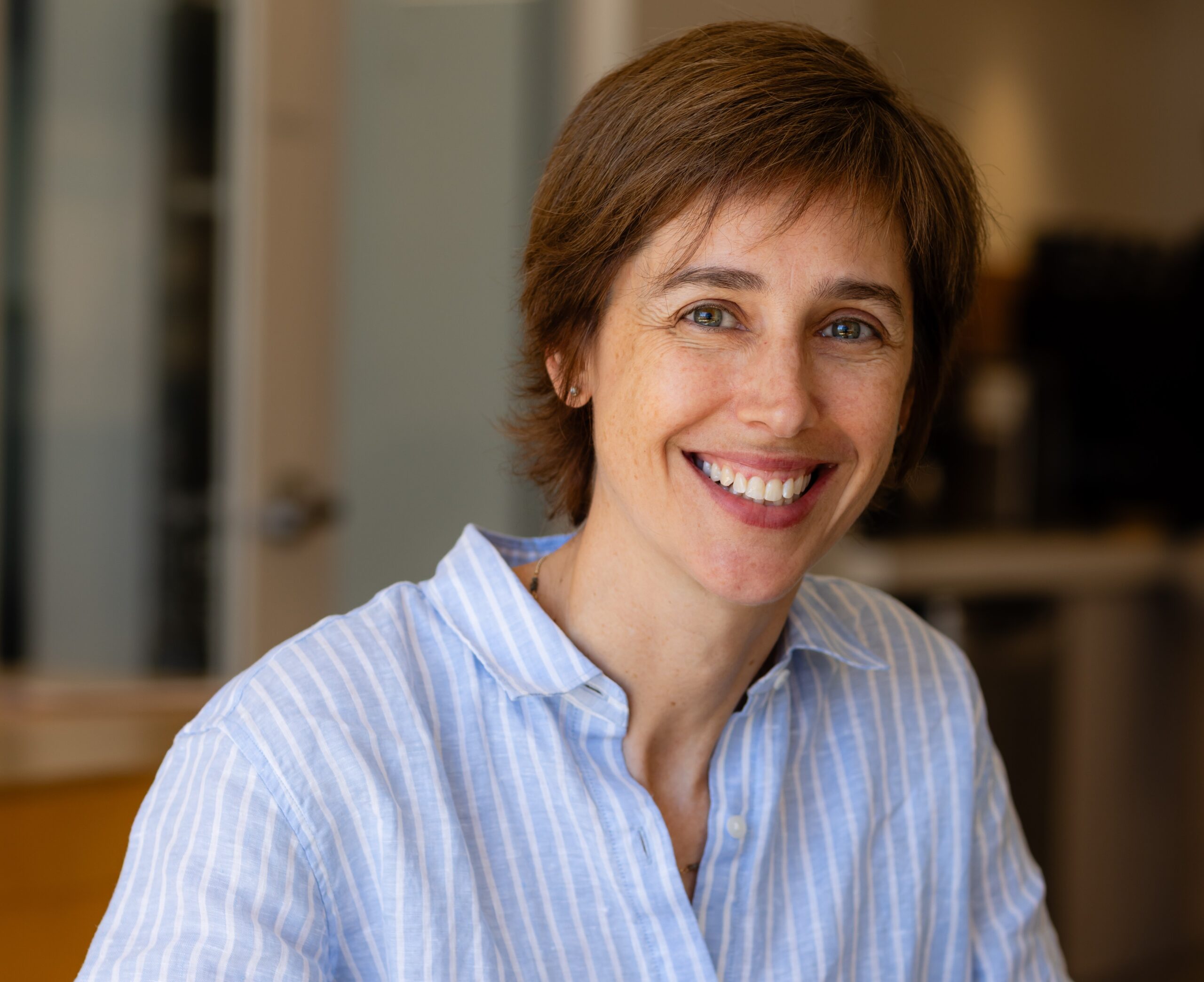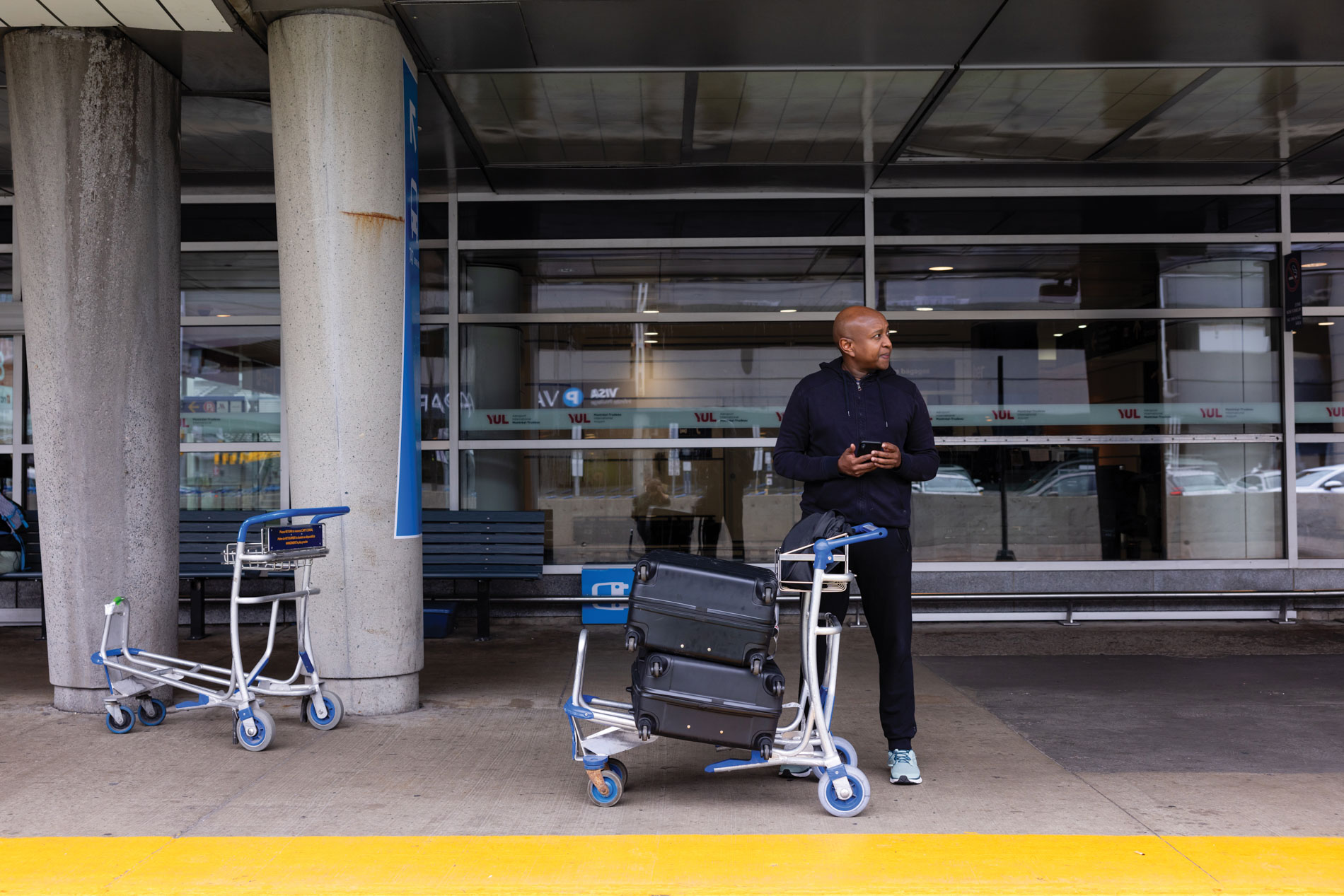Student affairs staff navigate helicopter parenting
It’s now simply a given among student affairs professionals that parents will be involved in their children’s lives at university.


John Hannah notes, with a laugh, that his kids are “nauseatingly close to postsecondary age.” The father of two will soon watch as his teenagers begin the exciting but often bureaucratic and stressful journey of applying to university. Mr. Hannah must make a tough call: how much, exactly, should he hand-hold, guide and support them during this pivotal step towards adulthood?
As director of special projects in student affairs at Ryerson University, he’s more than equipped to lend a helping hand. Mr. Hannah has spent more than 15 years in higher education, primarily in student affairs roles, helping other people’s children weather the highs and lows sprung upon them during their first major foray outside the family nest. When it comes to university life, Mr. Hannah is an expert. He’s calmed the nerves of many a parent having a minor panic attack over sending their beloved babies off to university.
Plotting a course through the daunting paper trail of applications to fill out and deadlines to meet can be tricky, and that’s all before a student attends their first class, never mind begins the process of studying and obtaining good marks.
“Parents are, indeed, playing a greater role in helping their adult children navigate university,” Mr. Hannah says. “Years ago, I would have met those parents with a bit of an annoyed sigh. I would have tried to explain to them that depriving their kids of the growth and learning they get from being on their own is ill-advised. I would have pushed for the autonomy of the student. … I still believe strongly in that idea, but now, as a dad myself, I have much greater sympathy for parents and the dilemma they face.”
There are many idioms to describe today’s involved parents — lawnmower, bulldozer, snowplow — but the most famous descriptor for their over-zealous, diligent doting remains “helicopter.” They are the well-intentioned guardians who metaphorically hover over every move their child makes to help guide them safely into adulthood.
According to student affairs advisers, the issue of helicopter parenting at the postsecondary level is not up for debate in the same way it was 10 or 15 years ago. Parents are involved, period; there’s no stopping them, whether it be supporting their children financially, emotionally or academically.
In response, universities are finding that it’s not just a courtesy but a responsibility to include mom and dad as stakeholders. “Historically, parents used to sort of drop their children off and [student affairs offices] were to pick up the role where they left off,” says Mr. Hannah. But that’s no longer the case. “We’re working with parents now, we’re keeping them involved.”
At Ryerson, Mr. Hannah’s work intersects with the departments of housing, career services, health and wellness, learning support and student life. The university offers everything from online tips for parents who are concerned for their children, to a regular parent newsletter that it began sending out last year. Ryerson also hosts info sessions for parents and guardians. Information presented consists of everything from an overview of what parents should expect in their child’s first year, to a briefing on school policies and procedures, including confidentiality provisions.
“It’s about easing anxieties in the initial stages, before their children may even move into a dorm,” explains Brandon Smith, manager of residence life and education at Ryerson. “We also talk about the Freedom of Information and Protection of Privacy Act,” he says. FIPPA sets rules for how institutions and governments deal with personal information of Canadian citizens, including what information can be gathered and what information can be disclosed to third parties. Once a person reaches 18 years of age, guardians no longer have certain rights to their child’s private information.
“My hope is to offer parents info so that they will begin to see a way that they can provide support, without smothering. And we think it’s working,” Mr. Smith says, adding that “on the odd occasion that a parent calls us and wants to know about a student’s private info, we address it with empathy, not judgment,” by explaining that the university can’t share private information. “But we do go back to the student and have a conversation with them to let them know their parent is worried. We try to encourage the student to reach out to their family,” he says.
That other bugbear regarding helicopter parents — calling the school to fight for their child’s academic progress, arguing for better grades with faculty and questioning course work — is more a rarity than the norm, both Mr. Smith and Mr. Hannah agree. “I have to say, I can’t recall a time when I had a super over-aggressive parent try to interfere with a student’s life. I’m sure they’re out there, but I think the stereotype is worse than the reality,” Mr. Hannah says.
“Parents have legitimate worries, and it’s not always about grades. We are way more aware as a nation about mental health concerns in young people, as well as campus violence and safety issues,” adds Mr. Smith. “Think about how much prominence these issues now get in our mainstream media. Being aware of the issues so we can address them as parents, students and administrators is a good thing. But, it also sets alarm bells off in parents’ minds, and I totally get that they want to make sure their kid is happy and healthy and safe as they go off to university.”
Ryerson is far from the only university treating parents as equal stakeholders in their child’s education. Queen’s University also hosts parent info nights and dedicates a portion of its website to parents’ questions and concerns. Simon Fraser University, University of Calgary, University of Toronto, Bishop’s University, McMaster University and the University of Prince Edward Island, to name just a few, have similar approaches.
Andrée-Anne Stewart, a communications adviser at Université Laval, says her university has also had a parents-only section on its website for about five years. But, she says, it’s not really related to the helicopter parents phenomenon, which “doesn’t seem to exist here,” she says. “We don’t get calls from parents who are desperate to know every detail about their son or daughter. It’s an important step in their child’s life, so we figure parents will have questions and want to know how it works. They are interested, but not to an unhealthy extreme.”
Quebec’s distinctive education system may play a role in why this phenomenon is less prevalent in the province, Ms. Stewart suggests. “By attending CEGEP (Quebec’s junior college system), students do one more year before going to university than young people in other provinces. That may explain why we don’t have any major instances of helicopter parenting.”

Linda Quirke, an associate professor of sociology in the faculty of arts at Wilfrid Laurier University, says a variety of sociological, cultural and economic factors influence why parents are more involved in their child’s education than they may have been 10 or 20 years ago. “The norms of parenting are shifting,” she says.
According to Dr. Quirke, the first half of the previous century was a time of emotionally detached parenting. Parents were advised to focus on hygiene and not to play with their children too much. “The job was to keep them alive. That was good parenting,” she says.
If children were out the door by their late teens and working to provide a living for themselves, mom and dad had done their job by society’s common standard. However, by the 1960s, experts became more focused on how children’s brains functioned and how to nurture them as individuals. Still, things were pretty much complete in the parenting zone by the time a child was old enough to vote.
“Come the ’80s and we start to see parenting changing again. Parents, at this point, have more flexible schedules and income — they’re signing their kids up for everything they can, from sports to LEGO camps and robotics groups. Parenting has shifted to focus on nurturing a child cognitively,” she says, adding that parenting trends suggest that we’re heading towards an era of “intense supervision.”
In this day and age, to be a good parent — a great parent — society keeps telling people, “You’ve got to get them off to college,” says Dr. Quirke. Mr. Hannah at Ryerson agrees: “Parents are expected to see their children through much more than just the teen years now. For some parents, not getting their kids through some sort of successful postsecondary experience feels like a kind of failure.”
That puts a lot of pressure on parents, pressure that Janice Paskey, a journalism professor at Mount Royal University, knows all too well. With one child in his first year at Concordia University and another finishing up high school and deciding where his own path will take him, Ms. Paskey sees just how convoluted the system can be for students.
“Universities are really complicated bureaucracies and if parents are getting involved, it’s not necessarily because they are helicopter parents. It’s because they are trying to negotiate and help their child with what can be a very complex system,” she says. As well, tuition has risen significantly over time. “When parents are often paying for that, how are they not going to be engaged?”
When Ms. Paskey’s oldest son qualified for an Alberta government scholarship last year, he was elated to find out he might receive several thousand dollars. All that was required was for his university to send confirmation that he was a student there. But something went wrong in the communication between his university and the scholarships office.
“My son called me and told me the [scholarship] office said his university reported there was no record of him being registered. He was in the middle of his mid-terms in his first year. What was I going to do?” Ms. Paskey says. She immediately got on the phone to both institutions and had them connect with each other.
Ms. Paskey adds that she’s careful about overstepping boundaries that she sees as “taking it too far.” She says she encourages her eldest to use the academic resources available at his university for help with essays and course selection.
As a professor, Ms. Paskey is also aware of how helicopter parenting can get out of hand. “There’s good research out there regarding retention rates of students when their parents are too involved. For example, parents who picked their kid’s major and courses … those students are often gone by year two, because they’re not personally invested,” she says. “As an educator, I would say to parents, ‘If your kids aren’t taking the initiative on their own, they’re not ready to go to postsecondary.’”
Because many parents of millennials have themselves been to university or college, Dr. Quirke at Wilfrid Laurier says they are much more likely to continue to assist their adult children through the undergraduate level and beyond. They have an understanding of the challenges their child is facing and they can offer tangible advice and guidance, where other generations before might not have been able to do so.
“Parents have inherited a heightened sense of obligation,” Dr. Quirke says. “And, when all of your instincts as a parent have been honed to intervene and help … that’s not an easy habit to break.”
She adds: “To be quite honest, as an educator I’ve been very lucky – I have not had any parents in my office demanding that I give their child special treatment or a better grade. I think they may be advising their children on the sidelines, but they’re not necessarily bursting into classrooms.”
At the same time, young adults are not “pushing back against their parents for independence” as previous generations may have, Dr. Quirke says. Millennials, it seems, are much more open with their parents than Gen X and the boomers were. “They see their parents as friends and confidants.”
Mr. Smith at Ryerson adds that technology plays a role in why students may not be cutting the apron strings at the same rate they were a generation ago. “Now, if a parent needs to talk to a child who has gone away to college, they don’t wait for their kid to call them back on a landline. They just send a simple text. Families can be in constant contact,” he says.
However, student affairs professionals must keep in mind that not every student has a supportive family acting as the wind beneath their undergrad wings. “We are used to students having more support than they did in the ’90s and a decade ago,” says Mr. Hannah. “But we can’t forget that there are still many students who need student affairs to fill a role in their life. We need to make sure we even the playing field for students who don’t have the parental support,” he says.












Post a comment
University Affairs moderates all comments according to the following guidelines. If approved, comments generally appear within one business day. We may republish particularly insightful remarks in our print edition or elsewhere.
7 Comments
I suppose one might package helicopter parenting in a variety of nice wrapping, but when I see or hear of it the alarm bells go off. Yes, universities are complex places, but most young folks are tech savvy and can figure things out if given a chance (or a ‘need’) to do so. The helicopter parent denies the young high school graduate the opportunity to grow up as all of us had to do at one time or another. Having one’s hand held doesn’t facilitate that growing up process very well for young adults! Indeed, I worry about our graduates when I know that their parents took care of business for them in getting through. It’s bad enough that most kids raised in the place where they also attend university, mine included, often do not have much extra-curricular work (e.g., cooking, cleaning, laundry, etc.) as do many of those coming from beyond. But to take care of their university affairs? That’s just going too far, at least for me.
Thank you for the interesting article. A time ago, I had to deal with a ‘helicopter’ parent who had overstepped their bounds and I feel it might be helpful if I share my experience.
Five years ago, when I was working as a teaching assistant, I had the issue of a parent attending my tutorials for their child, who had an extended illness. The student had just stopped showing up and neither the instructor nor I had received any information that the student was ill (no sick note or anything of that nature). The parent tried to submit work on behalf of the student, which I could not accept, and they also tried to get me to talk to them about their child’s performance, which I could not do because of privacy reasons. It got to the point that this parent was waiting outside every one of my tutorials for weeks and then was coming to the main lecture and talking to the head instructor, and following both of us around campus; it was very disruptive. The instructor contacted the parent and asked them to stop but the parent refused and would not listen to the instructor. The instructor and myself ended up going to the dean and we were told that this was a bit extreme but not completely unheard of. For several years previous in other faculties, the dean told us, parents were coming to lectures to take notes for their children who were too sick to attend. This blew me away. I never thought that this happened and in my undergrad, my parents definitely would not have taken notes for me. Eventually, the dean’s office contacted the parent who was following us around and got them in touch with the right student affairs office to arrange for a medical leave of absence for their child and I never heard from the parent or student again. It was a strange experience but I am glad that it seems like it was a fringe event and not the norm.
Millenials see their parents as “friends and confidants.” NO CRAP!!!! That’s because their parents were friends and not parents! Not we see the aftermath of that failed parenting style. That’s why we we are seeing this sickness in millenials. Come on now, if your child can’t navigate that process of going to college themselves, then they do not belong in college. College is for ADULTS. Not children. I am a grown college student who is sickened by the behavior of millenials in my classes. They make up excuses for not doing the work. They’re too stressed out to do the assignments, the poor dears! Then go home and run to mommy! Newsflash, college is work, often very hard work. If you don’t have what it takes, then you don’t belong there. You belong in elementary school. Your parents should not be calling colleges, you should. Your parents should not be asking for grade changes. You have the grades you do because YOU earned them. If you want a better grade, perhaps you actually need to put the effort in to get a better grade, you idiots! And the parents who practice this forever damaging helicopter parenting have no business being parents. You cannot properly parent! You are not a good parent, you just think that by doing everything for your kid, you’re a good parent. How wrong you are. Doing things to be their friend is also horrible parenting. Get a clue!
As a university student 1979-1983, I would have been deeply humiliated if my parents had intervened in my relationship with my university without consulting me, and I certainly would only have asked them for help in an emergency. Now, as a Professor, I am glad to say that I have not personally had to deal with a modern “helicopter” parent, but I know that our Department has had some real problems in the past.
Frankly, I have little sympathy for the concept. At age 18 a person is an adult. We should deal with our students as adults, with all the rights and the responsibilities that that entails.
The fact that the article refers to these young adults as ‘children’ is problematic. The proverbial umbilical cord should be cut at some point. Are we to expect parents at the next steps in life? Job interviews? Graduate school interviews? All that is being perpetuated is the overwhelming sense of entitlement of the Me (not millennial) generation.
I taught for 15 years and had a handful of parents over the years call to question my judgment regarding grades, often noting that my grade should align with their child’s future aspirations (e.g., “but she wants to go to law school – she needs a better grade than that”). I usually replied that I was not at liberty to share any information but that they could share whatever they liked. At least this gave the chance to ‘get it off their chests.’
I am of the generation that is cultivating these sometimes-overly-dependent optimistic students and my advice to my peers / this generation of parents is: you have to be able to tolerate your offspring’s mistakes. It is their life, not yours. If you clean it up for them every time, they won’t gain needed skills. Letting go when the stakes are higher (post-secondary age) is more of a challenge than letting them figure out elementary-school-sized imagined crises. The comedian Dana Carvey, now 60, comments on this cogently, ending his anecdote about his adult son’s struggle with a landlord, “so, I did it for him….”
I think the difference from say 20 years ago when we were applying to university is $$$$$. Tuition was maybe 3 or 4 thousand dollars…..so big deal if you changed your mind or failed…..just try something else! Now it’s a huge investment- up to $20,000 per year. You bet your ass I’m going to be involved at that price!!